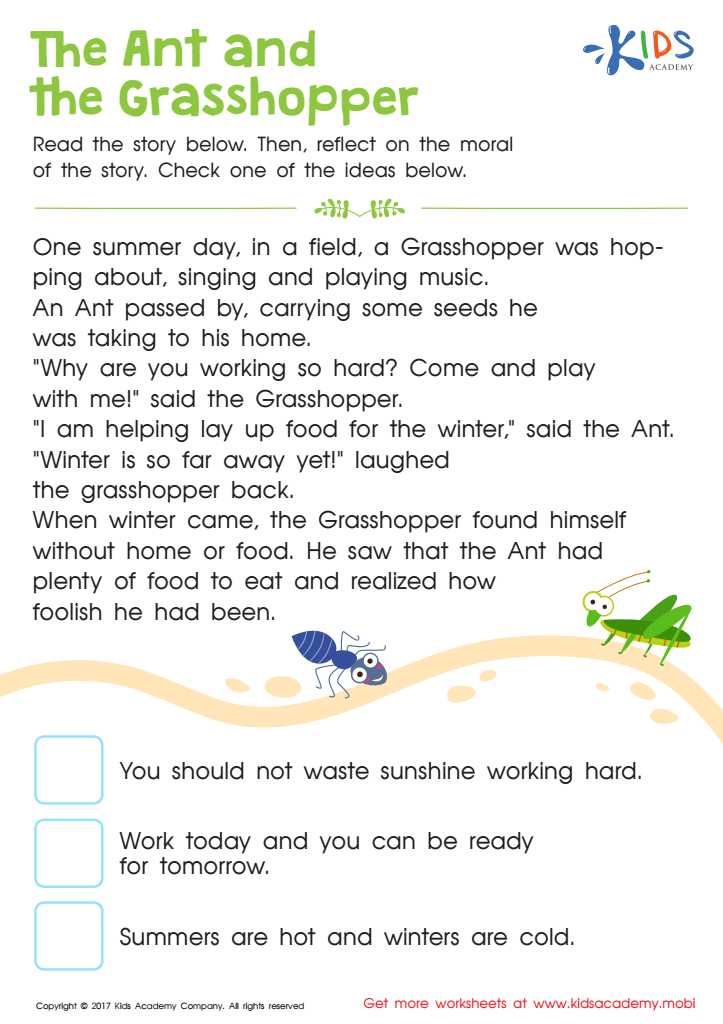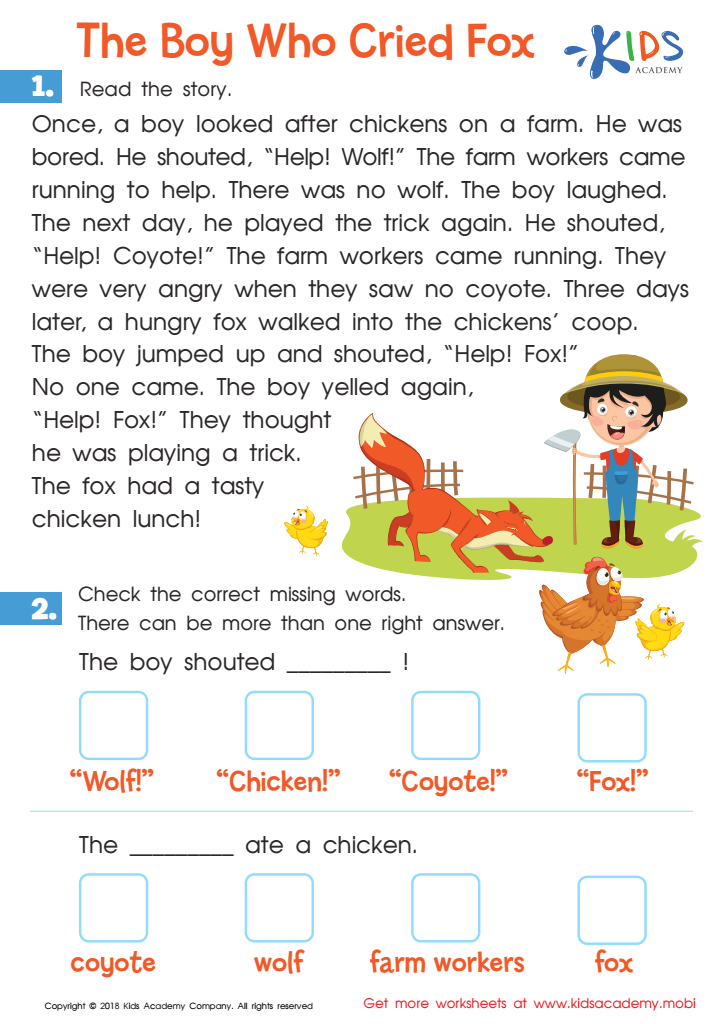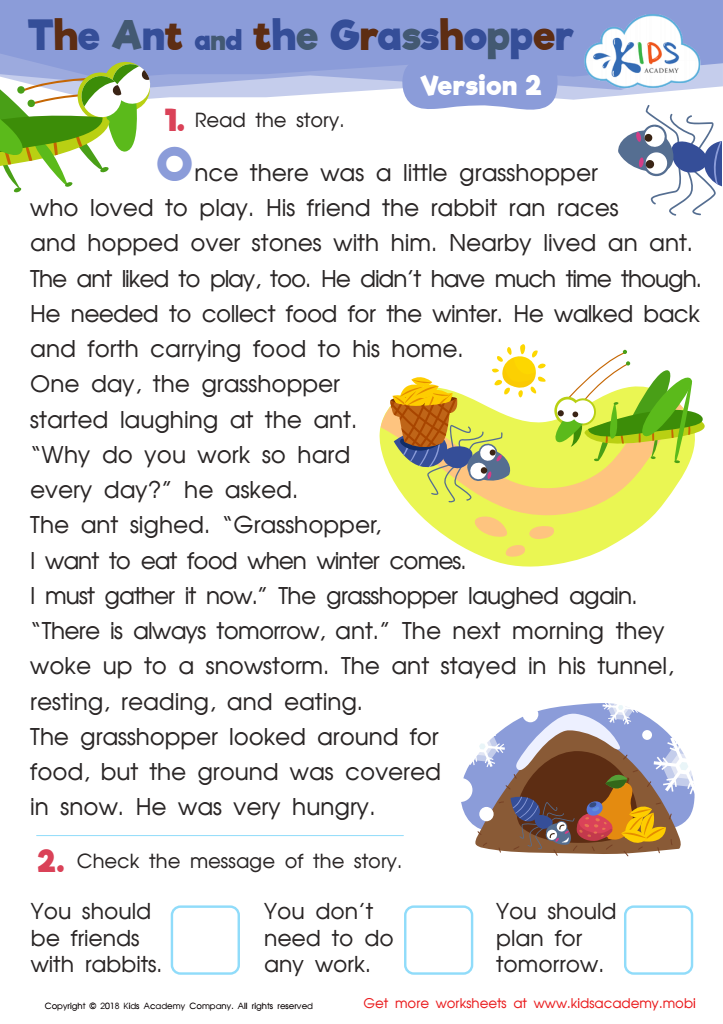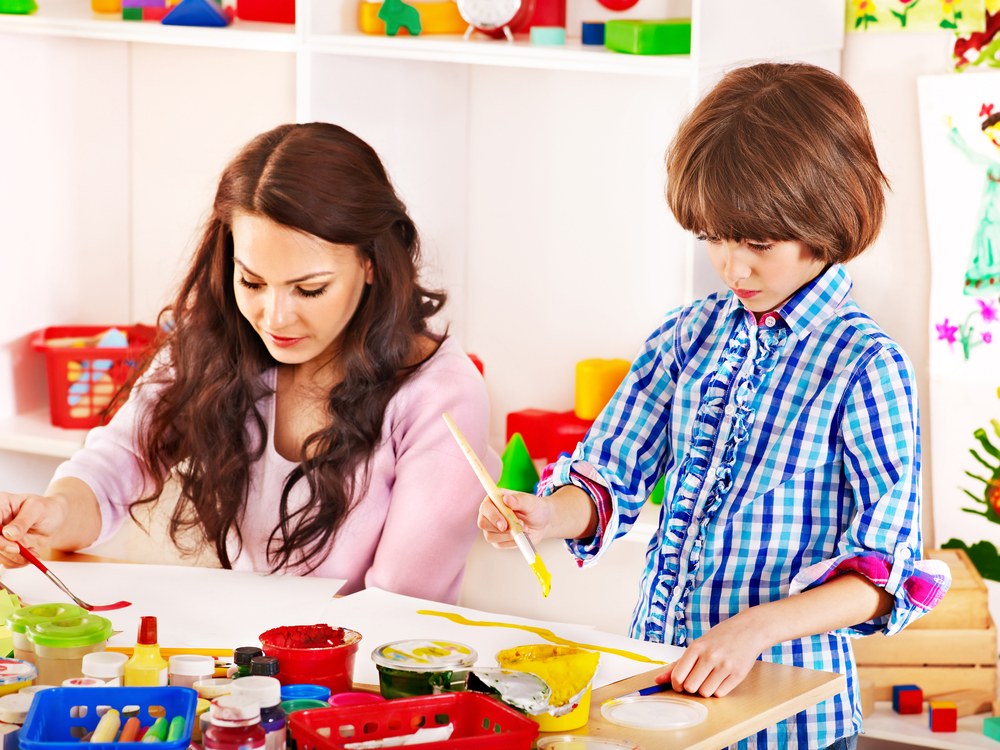Moral lesson understanding Worksheets for Ages 3-7
3 filtered results
-
From - To
Explore our engaging Moral Lesson Understanding Worksheets designed for children aged 3-7! These worksheets are ideal for helping young learners grasp essential life lessons through fun and interactive activities. Each worksheet focuses on relatable scenarios that promote understanding of values like kindness, honesty, and empathy. Educators and parents can use these resources to facilitate discussions about morality and the importance of making positive choices. Children will develop critical thinking and social skills while having fun! Perfect for classrooms or home learning, our worksheets make moral education accessible and enjoyable for early learners. Download and inspire young minds today!


The Ant and The Grasshopper Printable


The Boy Who Cried Fox Worksheet


The Ant and The Grasshopper Version 2 Worksheet
Parents and teachers play a crucial role in shaping the moral development of children aged 3 to 7, a formative period for emotional and social growth. Understanding moral lessons equips young learners with essential skills such as empathy, sharing, and honesty. These foundational values help children navigate relationships, resolve conflicts, and make informed decisions.
Research indicates that moral development during early childhood influences behaviors throughout life, laying the groundwork for ethical reasoning and social responsibility. When parents and educators introduce moral lessons through stories, discussions, and real-life situations, they are facilitating conversations about right and wrong, justice, and compassion.
Moreover, incorporating moral education helps children build a strong sense of self and encourages positive interactions with peers, boosting their self-esteem and promoting inclusivity. In group settings, teaching moral lessons fosters teamwork, cooperation, and respect for diversity, crucial for their future social environments.
Ultimately, nurturing moral understanding lays the path for future citizens to contribute positively to society. Investing time in these lessons not only enriches children's lives in the present but also influences their development as empathetic and responsible adults. Hence, both parents and teachers must prioritize moral lesson understanding in early education.
 Assign to My Students
Assign to My Students
















